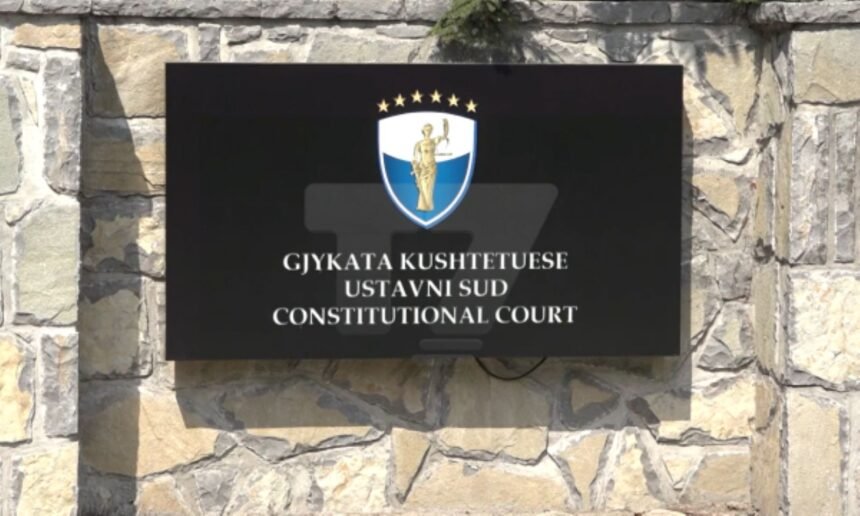As the Kosovo Assembly seemed on the verge of being fully constituted, the process stalled over the election of the Deputy Speaker from the Serbian community.
The next attempt to complete this process is scheduled for August 28, the tenth day of the 30-day deadline set by the Constitutional Court for the Assembly’s constitution.
What Happens If the Deadline Isn’t Respected?
If the deadline is missed—and potential “violations” highlighted by experts during the election of four out of five Deputy Speakers are confirmed—the Constitutional Court has not clarified the consequences.
Even written questions sent by Radio Free Europe regarding possible sanctions went unanswered. A similar scenario occurred on June 26, when the Court issued a ruling on the same matter without assigning penalties, which was also not respected.
Why Was the Assembly Not Fully Constituted?
More than six months after the February 9 parliamentary elections, Dimal Basha from Vetëvendosje (LVV) was elected Speaker of the Assembly on August 26.
On the same day, three Deputy Speakers from Albanian parties and one from non-Serb minorities were elected. The process stalled on the election of the Serbian Deputy Speaker, due to political disagreements and deviations from the agenda. Some opposition MPs from the previous legislature brought the matter to the Constitutional Court.
- June 26: The Court ordered the Assembly to be constituted within 30 days, but the deadline was ignored.
- July 24: The Court blocked a constitutive session after the deadline passed.
- August 8: It ordered the election of the Speaker through an open vote.
Expert Opinions
Ehat Miftaraj, Director of the Kosovo Institute for Justice, stated that the Court intentionally avoided specifying consequences for non-compliance to maintain the 2014 standard, under which the winning party retains the right to propose the Speaker.
“The Constitutional Court acted principledly, avoiding pre-judging MPs and political parties for following or ignoring its decision,” Miftaraj said.
He noted that the Court should have imposed sanctions on the presiding officer, Avni Dehari, who deviated from the agenda by calling for a secret ballot for the Speaker, contrary to the Court’s ruling.
Former Constitutional Court President Enver Hasani echoed this, saying the Court avoided determining consequences due to caution regarding politics, especially the LVV party, which he described as aggressively pressuring judges.
Political pressure also influenced the Court’s decisions, according to analyst Artan Muhaxhiri, leading to ambiguous rulings open to interpretation by parties and the public.
What Could Happen Next?
Experts indicate that if the Assembly fails to be fully constituted by September 18, MPs or political parties may appeal to the Constitutional Court for clarification on legal consequences, forcing the Court to determine steps to overcome the institutional deadlock.
Even President Vjosa Osmani had submitted a similar request but later withdrew it due to concerns over Judge Radomir Llaban being assigned to the case.
After Basha’s election as Speaker, Osmani expressed hope that the constitution of the Assembly would conclude in accordance with the Constitution. However, political analysts warn the process could continue to drag on, as some election procedures for Deputy Speakers were deemed unconstitutional.
- Votes for Deputy Speakers from minority communities cannot be separated, as occurred on August 26.
- The Democracy Plus organization recommends a single vote for both candidates representing non-majority communities to comply with the Constitution.
This marks the first time a constitutive session of the Kosovo Assembly has extended through 58 continuations without completion. The 59th attempt is scheduled for August 28.







